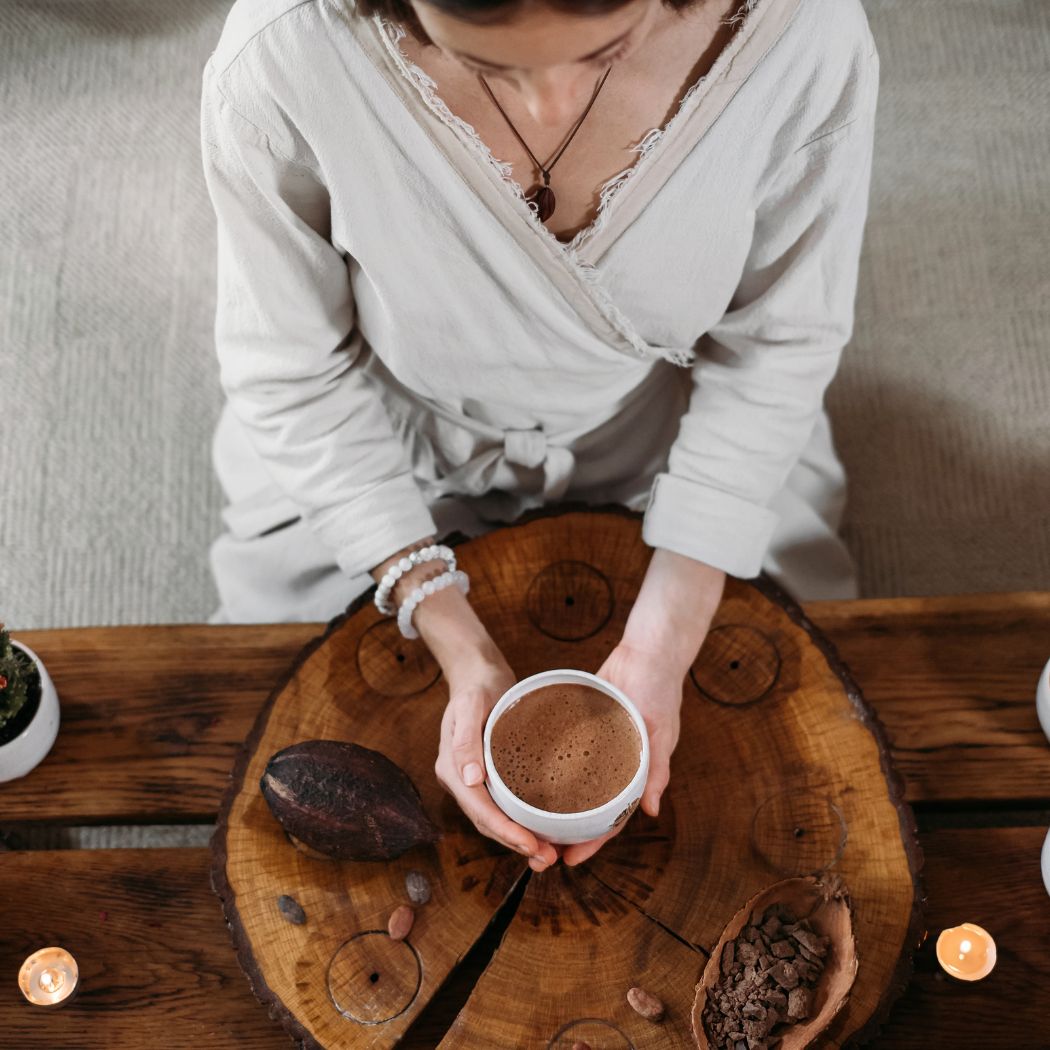You are what your deepest desire is. As is your desire, so is your intention. As is your intention, so is your will. As is your will, so is your deed. As is your deed, so is your destiny.
The Yogic Conflict: Are Your Desires Good or Bad?
Have you ever wondered whether your desires are a good or a bad thing, or whether wanting material prosperity compromises your spiritual evolution in any way? Have you ever questioned the intrinsic "goodness" of your desires or doubted their depth? Did you ever wonder whether having desires makes you less free in any way?
These are questions that probably most human beings on a spiritual quest have been facing at some stage. And while there is no right or wrong answer or one right way to address them all, let's have a look at what the fundamental texts of yoga have to say about the subject.
Some of the oldest existing spiritual scriptures on the planet are the Vedas. They have some profound ideas in them which have been woven not only into yogic philosophy, but also into many of the world's religious and spiritual traditions
Vedas say that your individual happiness - provided it is sustainable and long-term - is in fact consistent with global well-being and thriving. When you are thriving and serving your highest purpose, you are serving the highest purpose of everything, contributing to the global greater good. And in order to thrive, our souls have to satisfy the 4 desires. If we honour all of them, we are able reach our full potential as human beings, and that potential is truly limitless.
These 4 desires are intended to let the seed of our potential come to its fullest blossom, its fullest realisation.
Let's take a closer look at them.
Dharma
Dharma is a word that is sometimes a bit tricky to translate. In fact, it has a few meanings including path, law, virtue, purpose. One way to explain what Dharma means is to acknowledge that each of us has a unique reason for being. A unique purpose if you will.
Each of us has come to this world with something noble and significant to contribute to the greater good. It can be anything really: bringing up an incredible human being, serving others through your career, having a mission in life that benefits others. And even though we often equate purpose with our career choice, it doesn't have to be related solely to the career. Rather, Dharma is your greater mission which is a product of a unique combination of your qualities, perspective, skills, life experience. If we are to be happy, we need to fulfil that purpose, your Dharma. You can have all the material success in the world, but until your purpose is fulfilled, you will never feel completely satisfied. If you honour the first desire, your purpose, you are approaching deep lasting happiness.
Ask yourself: what am I here to do, how can I contribute, what do I want to accomplish? How can I elevate others in doing so?
And now let's have a look at the other 3 desires that are in essence, in service of the first.
Artha
Artha is means to fulfil your Dharma, your purpose. Artha is often thought of as monetary or financial means of realising your purpose, however besides prosperity and financial means, Artha is also physical conditions to be able to fulfil your Dharma, food, roof over your head, clothing and enough material possessions to live a meaningful life. Even though you may believe yoga is a path of complete renunciation of any worldly material possessions, unless a life of a sannyasin is your choice, yoga does not judge prosperity, quite the opposite: as I mentioned before, the thriving of an individual is aligned with thriving on a global level.
Watch out that this idea doesn't become a justification for greed through. What I do on a regular basis is ask myself: am I striving for material success because this is how success is often measured in this world, or is it purely a tool for attaining something important? Is it a purely selfish pursuit, or do I have a higher goal in mind? How can I continue to serve others better if I am thriving? How can I contribute more: both to the evolution of my Dharma and through that, to making this world a better place?
The financial well-being in fact, is not in conflict with yogic lifestyle or philosophy. To fulfil your purpose and spiritual destiny, you can have both: worldly prosperity and spiritual development.
Kama
Kama means enjoyment, pleasure.
The orthodox view on yoga is hesitant to embrace the idea of indulging in pleasure. And maybe it's not completely wrong as often we seek pleasures that are not constructive. To really understand the meaning of Kama in this context, we really have to differentiate between the superficial fleeting wish for instant gratification or destructive self-indulgence AND a sense of pleasure that we derive from being of service to our greater purpose. Our lives can be quite rich with pleasure in a healthy and balanced way that is not against yogic postulates, but beyond that, there is a pleasure of accomplishment. There is this sense of pleasure that comes with accomplishing something worthwhile.
When you are on your way to realising your higher purpose or Dharma, it should actually feel pleasurable, even if you do encounter challenges along your path. Pleasure is a part of greater purpose in life.
Moksha
Moksha means spiritual freedom, liberation. Often this concept is misinterpreted. It's portrayed in a way to attain true liberation and be able to call yourself a yoga practitioner, we have to let go of our material belongings, renounce our connections to our family and identity, miraculously dissolving into heaven or into a state of samadhi. However, this is not the way that this concept was really depicted in the ancient wisdom. Rather, If we could have the first 3 desires, and at the same time have freedom while we pursued them, that would lead to the greatest possible quality of life. Ask yourself: can I have these desires, pursue them AND still be un-burdened by them? That's what we as humans are really longing for.
The extent to which you are fulfilling all 4 desires, is a measure of how much you are really fulfilling your potential.
Another controversy is that in the orthodox view spiritual attainment is often considered to be the complete opposite of having desires.
If we dig into the teachings of the Buddha, we find a wealth of seemingly controversial statements. On one hand, the Buddha said that when we free ourselves of desire, we will know serenity and freedom. He did however also divide the desires into wholesome and un-wholesome. The wholesome desires are the ones that support your well-being and the well-being of the greater whole. The un-wholesome desires lack this quality.
The simplified Vedic view on desires divided them into helpful desires or just pleasurable. Pleasurable desires are more superficial and indulgent, whereas helpful ones are not only helpful for your own growth but also helpful for their positive impact on the larger whole that we are all a part of. This relies greatly on understanding that we all operate within a world that is interconnected, and not just consisting of a bunch of isolated un-related entities.
Many of you may wonder how to find your ultimate purpose, or where to find it. The key to how to find your purpose however, is found inside of you. It's not an external thing. We don't develop a purpose. We don't mirror or re-create someone else's Dharma. Only through stillness, timelessness, steadiness that is distinct from the society that we live it can we begin to truly listen and truly hear ourselves. Only in timelessness that is completely devoid of external information and stimuli does the true purpose become clear. We have to step outside of the scope that your rational mind can reach to see how vast we really are. And maybe, it is one of the most helpful things you can do for yourself.
Ask yourself: how will I support my well-being? How will I find my own way to really take a break and completely disengage from daily matters, from the mundane, from the flow of distractions that inundate our lives these days? How can I step out of your life on a regular basis to recharge and gain clarity?
To me the answer is completely obvious: the answers are in fact always in meditation. Besides that, I practice and teach the art and science of conscious deep relaxation that is called yoga sleep or yoga nidra. As the world gets more restless, I know we as humans will have a greater need to withdraw into our own healing stillness within, for which meditation and yoga nidra are wonderful guides.
Question, experiment and find your way and your trajectory into a wholesome, rich and purpose-filled life. The deepest questions about how to live won't be resolved by intellect alone: it is only the silent realm of meditation, combined with the desire to serve a higher purpose, that lets us to be continuously guided by the Spirit.
Inspired by Vedas, the Upanishads, the teachings of the Buddha, Rod Stryker and Bhagavad Gita.







